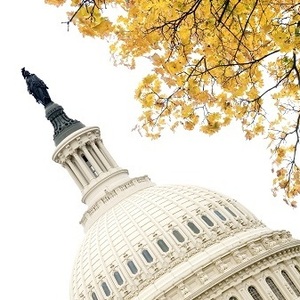NBB urges Congress to act on biodiesel tax incentive

October 28, 2016
BY The National Biodiesel Board
The National Biodiesel Board sent a letter to House and Senate tax committee leaders urging extension of the biodiesel tax incentive before it expires Dec. 31. The letter was sent on behalf of U.S. biodiesel producers nationwide.
“We strongly urge you to extend the biodiesel tax credit and take this opportunity to make a simple, common-sense reform by focusing the credit on U.S. production,” Interim NBB CEO Donnell Rehagen said in the letter. “Legislation pending before Congress—S. 3188 and H.R. 5240—would accomplish these objectives by extending the incentive through 2019 and changing it from a blender’s credit to a domestic producer’s credit. The legislation has strong support from American biodiesel producers and strong bipartisan support in both the House and Senate—reflected last year when a similar proposal passed the Senate Finance Committee.”
The growth of the U.S. biodiesel industry in recent years is paying tremendous dividends in reducing emissions, strengthening our energy security, generating competition in the diesel sector and creating jobs and economic activity in every state in the nation. The biodiesel industry supports nearly 48,000 jobs and $1.9 billion in wages across the country.
Advertisement
Advertisement
“Many biodiesel producers who are now poised to expand and hire would likely cut jobs and production. Congress can avoid this with a long-term extension giving producers the policy stability they need to plan for the future.”
U.S. biodiesel producers have more than 1.5 billion gallons of unused production capacity that stands ready to be utilized under the right policy framework. Mobilizing that capacity would create thousands of jobs and billions of dollars in economic activity. Additionally, reforming the incentive would save the Treasury some $90 million* as imports are reduced and domestic production rises, according to the Joint Committee on Taxation.
Advertisement
Advertisement
Under the current blender’s structure of the incentive, foreign biodiesel imported to the U.S. and blended with petroleum diesel in the U.S. is eligible for the tax incentive. Increasingly, foreign biodiesel producers are taking advantage of the U.S. incentive by shipping their product here. In 2015 alone, some 670 million gallons of biodiesel and renewable diesel was imported to the U.S., making up nearly a third of the U.S. market.
Made from an increasingly diverse mix of resources such as soybean oil, recycled cooking oil, and animal fats, biodiesel is a renewable, clean-burning diesel replacement that can be used in existing diesel engines. It is the first and only commercial-scale fuel produced across the U.S. to meet the EPA’s definition as an advanced biofuel—meaning the EPA has determined that biodiesel reduces greenhouse gas emissions by more than 50 percent when compared with petroleum diesel. Americans used nearly 2.1 billion gallons of biodiesel last year.
NBB is the U.S. trade association representing the biodiesel and renewable diesel industries, including producers, feedstock suppliers, and fuel distributors.
*Editor’s Note: This savings refers to IRS administration of the program, having fewer producer participants claiming the credit vs. the current higher number of blender claims, according to Kaleb Little, senior communications manager at NBB. This does not include the savings the U.S. government would realize from no longer subsidizing foreign biodiesel at $1 per gallon.
Related Stories
The USDA has announced it will delay opening the first quarterly grant application window for FY 2026 REAP funding. The agency cited both an application backlog and the need to disincentivize solar projects as reasons for the delay.
CoBank’s latest quarterly research report, released July 10, highlights current uncertainty around the implementation of three biofuel policies, RFS RVOs, small refinery exemptions (SREs) and the 45Z clean fuels production tax credit.
The U.S. EPA on July 8 hosted virtual public hearing to gather input on the agency’s recently released proposed rule to set 2026 and 2027 RFS RVOs. Members of the biofuel industry were among those to offer testimony during the event.
The USDA’s Risk Management Agency is implementing multiple changes to the Camelina pilot insurance program for the 2026 and succeeding crop years. The changes will expand coverage options and provide greater flexibility for producers.
President Trump on July 4 signed the “One Big Beautiful Bill Act.” The legislation extends and updates the 45Z credit and revives a tax credit benefiting small biodiesel producers but repeals several other bioenergy-related tax incentives.
Upcoming Events










